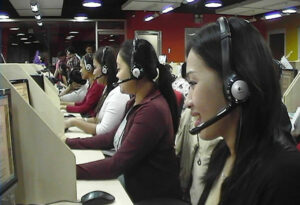THE PHILIPPINES needs to focus on developing its service workforce, with services viewed as the Philippines’ real source of comparative advantage in Southeast Asia, HSBC said.
“I think the Philippines’ unique value proposition is its people, the soft skills,” Ines Lam, associate director for Asia economics at HSBC, said at the 23rd International CEO Conference on Tuesday at Shangri-La The Fort.
She cautioned against “chasing after manufacturing like all other Southeast Asian countries.”
While manufacturing remains an integral part of any economy, she said the Philippine talent pool can be leveraged in the face of the turmoil caused by US tariffs.
“I think it is important that the Philippines does not lose this and instead focuses on developing this in response to these new trade dynamics and new paradigm,” she added.
In particular, she said the Philippines should seek to provide something new and improve its offerings in terms of business process outsourcing.
“That will help the Philippines stand out in this world,” she added.
Asked to comment, Management Association of the Philippines President Alfredo S. Panlilio said that manufacturing should also be highlighted, calling it equally important.
“I do not completely agree that you shouldn’t focus on it. I think we should try to have companies invest because when you say manufacturing, they invest in the country,” he told reporters on the sidelines of the event, noting that manufacturing investments are long-lasting.
“Services, yes, we need to upskill, but there are threats like technology, or if somebody says, ‘I can charge less,’” he said.
He said that focusing on services does not result in a balanced economy.
Meanwhile, Ms. Lam said the Philippines is relatively insulated from the impact of the US tariffs, as its economy is driven by domestic demand.
However, she said large unknowns remain with regard to US trade policy.
“The first unknown is we have a court case going through in the US right now” questioning the legal basis for the Trump tariffs.
Should the courts rule the tariffs illegal, the trade deals that countries have been negotiating with the US could be invalidated.
At the same time, the US government may also have to refund the billions of tariffs it collected.
“Imagine the chaos and the disruptions that we will have to go through when that happens,” she added. — Justine Irish D. Tabile
